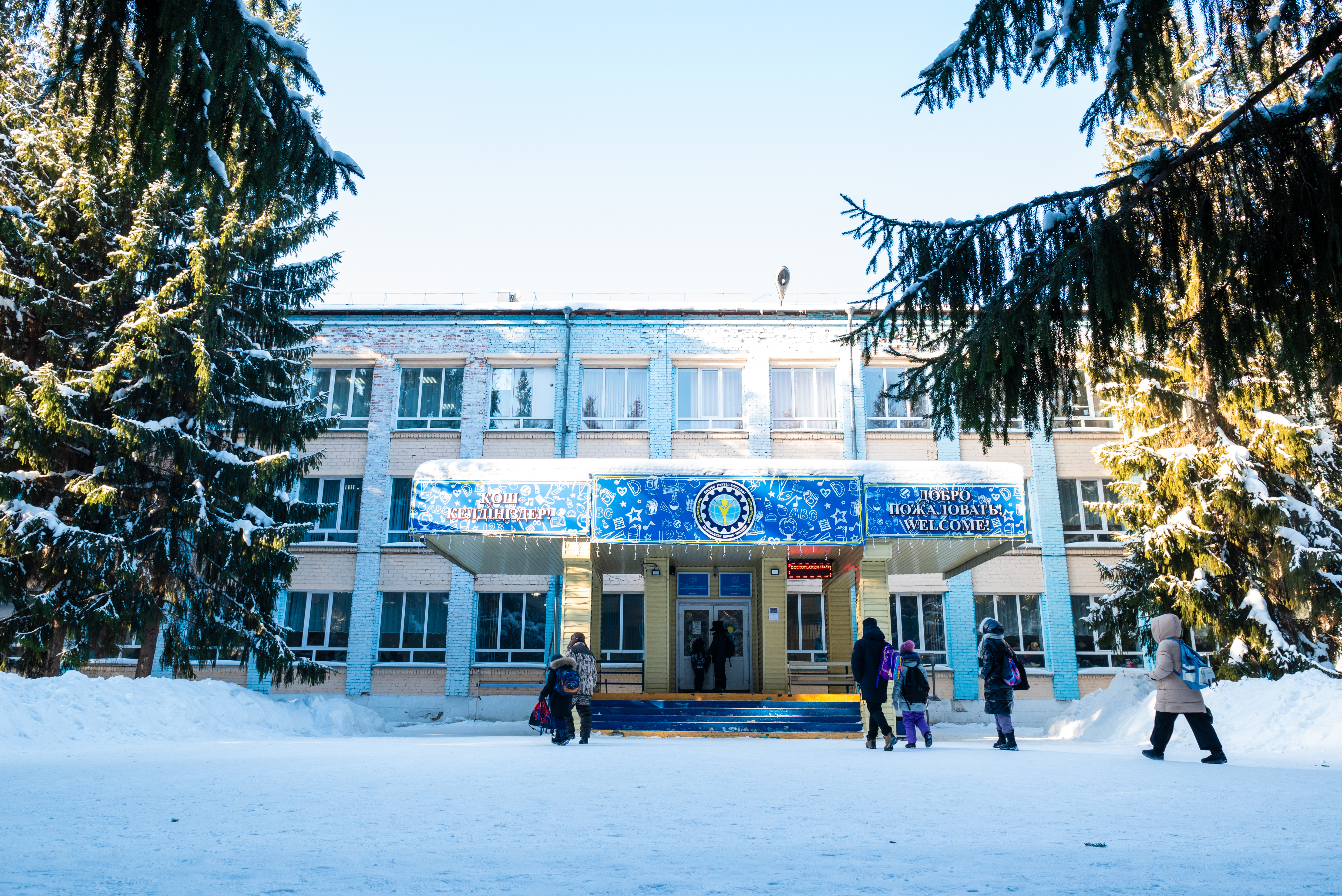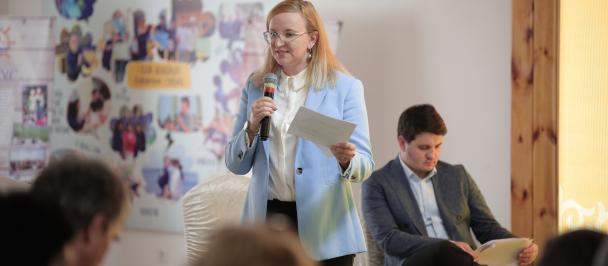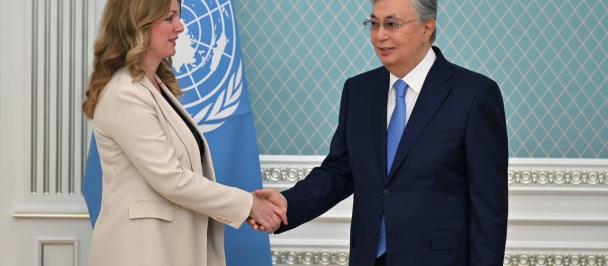Reducing heating costs and carbon emissions: insights from a school in Kazakhstan
February 1, 2024

The ecology lessons inspire children to innovate and learn more about environmental issues
Over a century ago, in 1913, a modest school with two classrooms opened its doors in Beskol, a village located in the North Kazakhstan region. Today, this small school has been transformed into a comprehensive educational complex and now includes preparatory classes, a high school, a college, and even a boarding facility for students. Spread across 7,000 square meters, the complex consists of four buildings, all connected by heated corridors. Currently, the school and college serve as a learning hub for 1,025 children aged 5 to 18 years, supported by a dedicated team of 169 teachers and staff.


The school in 1913 and now
In the harsh climate of the North Kazakhstan region, where winters pose a major challenge to maintaining comfortable temperatures in the school buildings, Tatyana Mishkina, the general director of the educational organization, is well aware of these difficulties. “It is a challenge to create a cozy and warm environment for our students and staff in winter. Every winter we have to deal with low temperatures, which sometimes drop to 15°C. Unfortunately, our district heating system is not able to provide the necessary heat,” she says.
The school has taken several measures to improve heat retention, including replacing windows, insulating doors and openings, and repairing side entrances. Despite these efforts, the bitingly cold winter air remained a persistent problem.
As part of the Sustainable Cities for Low Carbon Development project implemented by the United Nations Development Programme (UNDP) in partnership with the Ministry of Industry and Construction of the Republic of Kazakhstan and with financial support from the Global Environment Facility the Beskol school-college was significantly improved by installing a modular boiler system that generates thermal energy from biomass wood waste.
The boiler system can operate autonomously for up to two weeks, requiring only minimal supervision from staff
The installed modular boiler system consists of a boiler unit, a storage tank for woodchips, a boiler for combustion, mechanisms for automatic feeding of woodchips into the boiler, and systems for cleaning the boiler and ash. It also includes an intelligent control system that autonomously maintains the required temperature and fuel supply and monitors the combustion process. Remarkably, the boiler system can operate autonomously for up to two weeks and requires minimal supervision by staff. As weather conditions change, the system adjusts the heating levels accordingly.
The financial burden of heating and electricity is a significant strain on the budgets of educational institutions. At the Beskol school-college, heating expenses during the season previously reached nearly 16 million tenge annually. However, with the modernization, the institution now saves over 12,5 million tenge each year, reducing heating expenses by almost 80 percent.
The total investment in the new equipment was 92 million tenge, with the boiler system alone costing 73 million tenge and accounting for the majority of the expenditure. UNDP financial support covered 40 percent of these costs. In addition, 19 million tenge was allocated for the procurement of a meter and the construction of a special room for the boiler and fuel storage.
UNDP experts estimate that the new boiler system at the Beskol school-college will reduce carbon dioxide emissions by around 900 tonnes per year. This reduction is roughly equivalent to the emissions of 200 to 300 cars in one year.
"We are proud that our school is making an important contribution to global efforts to mitigate climate change by introducing environmentally friendly technologies and reducing carbon dioxide emissions. From an educational perspective, such initiatives not only inspire our students but also show them how important environmentally friendly technologies are. This plays a crucial role in instilling a sense of environmental responsibility in the future generation and empowering them to play an active role in promoting a more sustainable world,"explains Tatyana.
In addition to theoretical knowledge, children also develop skills: structured thinking, a critical attitude to reality, prediction, analysis
In the context of the energy transition, the integration of green technologies is pivotal for achieving carbon neutrality. The collaborative initiative of UNDP and the Government of Kazakhstan at the Beskol school-college has not only contributed to the reduction of greenhouse gas emissions but has also led to a significant reduction in heating costs. In addition, initiatives like this play a crucial role in encouraging active participation in the development of environmentally sustainable solutions and promoting a culture of environmental awareness and responsibility among the younger generation.

 Locations
Locations

















